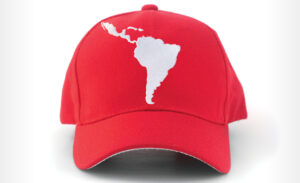
Quatro tendências que definirão a América Latina em 2025
Do retorno de Donald Trump ao risco crescente das mudanças climáticas, o editor-chefe da AQ apresenta um panorama misto neste artigo sobre as perspectivas para a região.

Cuatro tendencias que definirán a América Latina en 2025
Desde el regreso de Donald Trump hasta el creciente riesgo del cambio climático, el editor en jefe de AQ presenta un panorama mixto en este artículo sobre las perspectivas de la región.

Four Trends That Will Define Latin America in 2025
From Donald Trump’s return to the growing risk from climate change, AQ’s editor-in-chief paints a mixed picture in this annual overview of the region.
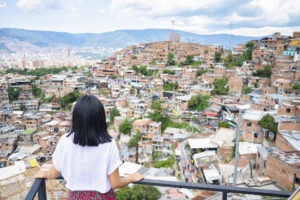
Can Latin America Regain Momentum in Fighting Poverty?
Despite significant progress, the region has seen a slowdown in poverty reduction. A set of key public policies can help, writes a World Bank economist.

The Problem-Solving Entrepreneurs in Brazil’s Favelas
In an era of surprisingly persistent poverty and hunger, some communities are making progress.

Latin America’s True Disaster May Be 2021
As new research shows huge setbacks to education and inequality, the region’s leaders seem to be “sleepwalking,” writes AQ’s editor-in-chief.
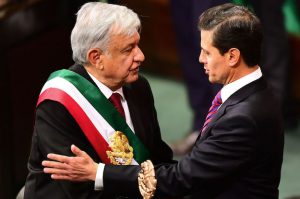
Why AMLO Will Struggle With Mexico’s Poverty Rate – Just Like His Predecessors
A new report shows just how much remains to be done for Mexico to reduce poverty and inequality.
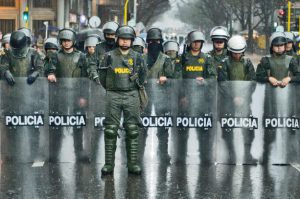
La pobreza en Latinoamérica esta bajando, pero la violencia sube. ¿Por qué?
Versão em portuguêsRead in English Con la pobreza en América Latina y el Caribe en sus niveles más bajos en décadas, ¿por qué la violencia está disparada? Aunque algunos países están peor que los demás, la región cuenta con las tasas de homicidios más altas del mundo. Esta relación es desconcertante y contradictoria. Los investigaores … Read more
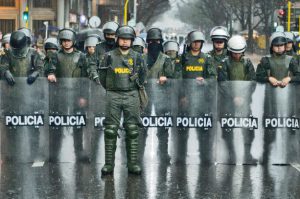
Latin America’s Poverty Is Down, But Violence Is Up. Why?
Versão em português With poverty in Latin America and the Caribbean at its lowest level in decades, why is violence off the charts? Although some countries are worse off than others, the region features the world’s highest homicide rates. This relationship is puzzling and counterintuitive. Researchers tend to expect an inverse relationship between improvements in the welfare of the … Read more

AQ Slideshow: El Bote at Cambalache: Life at a Landfill
“El Bote” is a fitting name for a large, now-defunct landfill in the community of Cambalache, along the Orinoco River in Puerto Ordaz, Venezuela. The Indigenous people known as the Warao rely on El Bote—often translated as “the can” or “throw away”—for their livelihood. The Warao once lived far up the Amazon River, but years … Read more
Profits and the Poor
Can the private sector fight poverty and still make money? Social initiatives have become increasingly attractive to companies around the world who believe that pursuing strategies that empower low-income groups and impoverished communities is also smart business. In Latin America, that argument has become the focus of debate among scholars and anti-poverty activists who question whether integrating low-income groups in the global or national economy through markets—“democratizing the economy,” as the development economist C. K.
Innovators/Innovations
Angel Medina
Ecuador
When he was 17, Angel Medina joined the Federación Interprovincial de Indígenas Saraguros, an indigenous advocacy organization in Ecuador. Four years later, he was the group’s president. Anyone who knows him wouldn’t be surprised. The indigenous leader, now 38, has a talent for bringing people together. Today, as founder and president of the indigenous rights organization Fundación Q’ellkaj (the Quichua word for “producer of knowledge”), he is putting that talent to use by bridging the racial divide in his country…
Pocketbook Poverty Alleviation
Over the last two decades, Latin American governments have expanded the social benefits packages available to their people. The classic universal model of social welfare policies paid for public services such as health and education, and provided social insurance money transfers that covered risk through contributory payments for items such as retirement and unemployment insurance. … Read more
Free Trade and Poverty
Is globalization a leading cause of rising inequality? Or does it help reduce poverty? These questions are at the heart of the major economic and social challenges confronting both high income and developing countries today. For developed industrial nations, the answers are bound to determine the outcome of the currently troubled Doha Round of trade talks—and possibly the future direction of the global multilateral trading system itself. But the stakes are no less high for developing countries.
Counting the Poor
Historically, especially in Latin America, more effort has gone into assessing the extent of “income poverty”— whether individuals possess sufficient income to live a minimally adequate life—than into determining the extent of non-income deprivations such as access to water and sanitation, adequate educational opportunities and basic health care.


